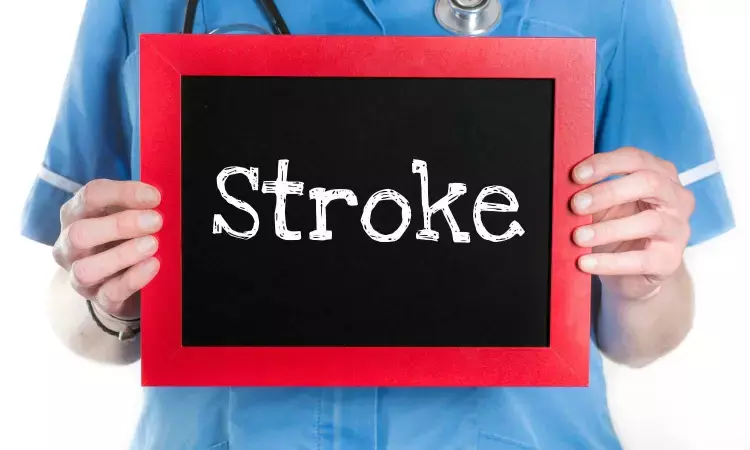- Home
- Medical news & Guidelines
- Anesthesiology
- Cardiology and CTVS
- Critical Care
- Dentistry
- Dermatology
- Diabetes and Endocrinology
- ENT
- Gastroenterology
- Medicine
- Nephrology
- Neurology
- Obstretics-Gynaecology
- Oncology
- Ophthalmology
- Orthopaedics
- Pediatrics-Neonatology
- Psychiatry
- Pulmonology
- Radiology
- Surgery
- Urology
- Laboratory Medicine
- Diet
- Nursing
- Paramedical
- Physiotherapy
- Health news
- Fact Check
- Bone Health Fact Check
- Brain Health Fact Check
- Cancer Related Fact Check
- Child Care Fact Check
- Dental and oral health fact check
- Diabetes and metabolic health fact check
- Diet and Nutrition Fact Check
- Eye and ENT Care Fact Check
- Fitness fact check
- Gut health fact check
- Heart health fact check
- Kidney health fact check
- Medical education fact check
- Men's health fact check
- Respiratory fact check
- Skin and hair care fact check
- Vaccine and Immunization fact check
- Women's health fact check
- AYUSH
- State News
- Andaman and Nicobar Islands
- Andhra Pradesh
- Arunachal Pradesh
- Assam
- Bihar
- Chandigarh
- Chattisgarh
- Dadra and Nagar Haveli
- Daman and Diu
- Delhi
- Goa
- Gujarat
- Haryana
- Himachal Pradesh
- Jammu & Kashmir
- Jharkhand
- Karnataka
- Kerala
- Ladakh
- Lakshadweep
- Madhya Pradesh
- Maharashtra
- Manipur
- Meghalaya
- Mizoram
- Nagaland
- Odisha
- Puducherry
- Punjab
- Rajasthan
- Sikkim
- Tamil Nadu
- Telangana
- Tripura
- Uttar Pradesh
- Uttrakhand
- West Bengal
- Medical Education
- Industry
Remnant Cholesterol Key Risk Factor for Acute Ischemic Stroke: Study

A recent study published in the Journal of Stroke and Cerebrovascular Diseases highlighted the role of remnant cholesterol (RC) as a significant risk factor for acute ischemic stroke (AIS). Despite being recognized for its contribution to atherosclerosis, the exact link between RC and AIS has remained unclear until now. This research by Qian Feng and team determined whether fasting blood RC levels serve as an independent risk factor for AIS.
This comprehensive retrospective analysis examined a total of 650 patients diagnosed with AIS and 598 healthy control subjects and were observed during the same period. The team utilized binary logistic regression to explore the association between RC and AIS by employing Restricted Cubic Splines (RCS) to illustrate the link between RC levels and AIS risk.
The study revealed that RC levels were significantly higher in patients with AIS when compared to the healthy control group. Also, RC emerged as an independent risk factor for AIS even after adjusting for various covariates. For the RC concentrations below 0.69 mmol/L, the risk of AIS increased with rising RC levels which indicated a non-linear relationship in the RCS analysis. Also, at RC concentrations of 0.69 mmol/L or higher, the risk plateaued and became insignificant with further increases in RC.
Further analysis uncovered a marked association between RC and diabetes, as well as fasting glucose levels. Among diabetic patients, the incidence of AIS surged significantly with increased RC levels. Also, the RCS analysis highlighted that in diabetic patients, the risk of AIS increased continuously with RC levels above 1.15 mmol/L.
This study conclusively identifies RC as an independent risk factor for AIS by revealing a distinct non-linear association between RC levels and the risk of stroke. The findings illuminate the necessity for targeted AIS risk assessment strategies for diabetic patients who show an increased vulnerability to higher RC levels.
The researchers advocate for incorporating RC measurements into routine assessments for AIS risk stratification in populations with diabetes. This approach could lead to more personalized and effective prevention strategies by potentially reducing the incidence of AIS. Overall, this research highlights the pathogenic role of RC in AIS but also suggests that managing RC levels could be crucial in preventing strokes in diabetic individuals.
Source:
Feng, Q., Li, H., Zhang, R.-Y., Sun, L., Zhang, S.-Y., Chen, Y., Zhang, Y., Shan, B.-S., Zhao, Z., Zhou, H., & Xu, X. (2024). Elevated remnant cholesterol is a risk factor for acute ischemic stroke. In Journal of Stroke and Cerebrovascular Diseases (Vol. 33, Issue 8, p. 107773). Elsevier BV. https://doi.org/10.1016/j.jstrokecerebrovasdis.2024.107773
Neuroscience Masters graduate
Jacinthlyn Sylvia, a Neuroscience Master's graduate from Chennai has worked extensively in deciphering the neurobiology of cognition and motor control in aging. She also has spread-out exposure to Neurosurgery from her Bachelor’s. She is currently involved in active Neuro-Oncology research. She is an upcoming neuroscientist with a fiery passion for writing. Her news cover at Medical Dialogues feature recent discoveries and updates from the healthcare and biomedical research fields. She can be reached at editorial@medicaldialogues.in
Dr Kamal Kant Kohli-MBBS, DTCD- a chest specialist with more than 30 years of practice and a flair for writing clinical articles, Dr Kamal Kant Kohli joined Medical Dialogues as a Chief Editor of Medical News. Besides writing articles, as an editor, he proofreads and verifies all the medical content published on Medical Dialogues including those coming from journals, studies,medical conferences,guidelines etc. Email: drkohli@medicaldialogues.in. Contact no. 011-43720751


